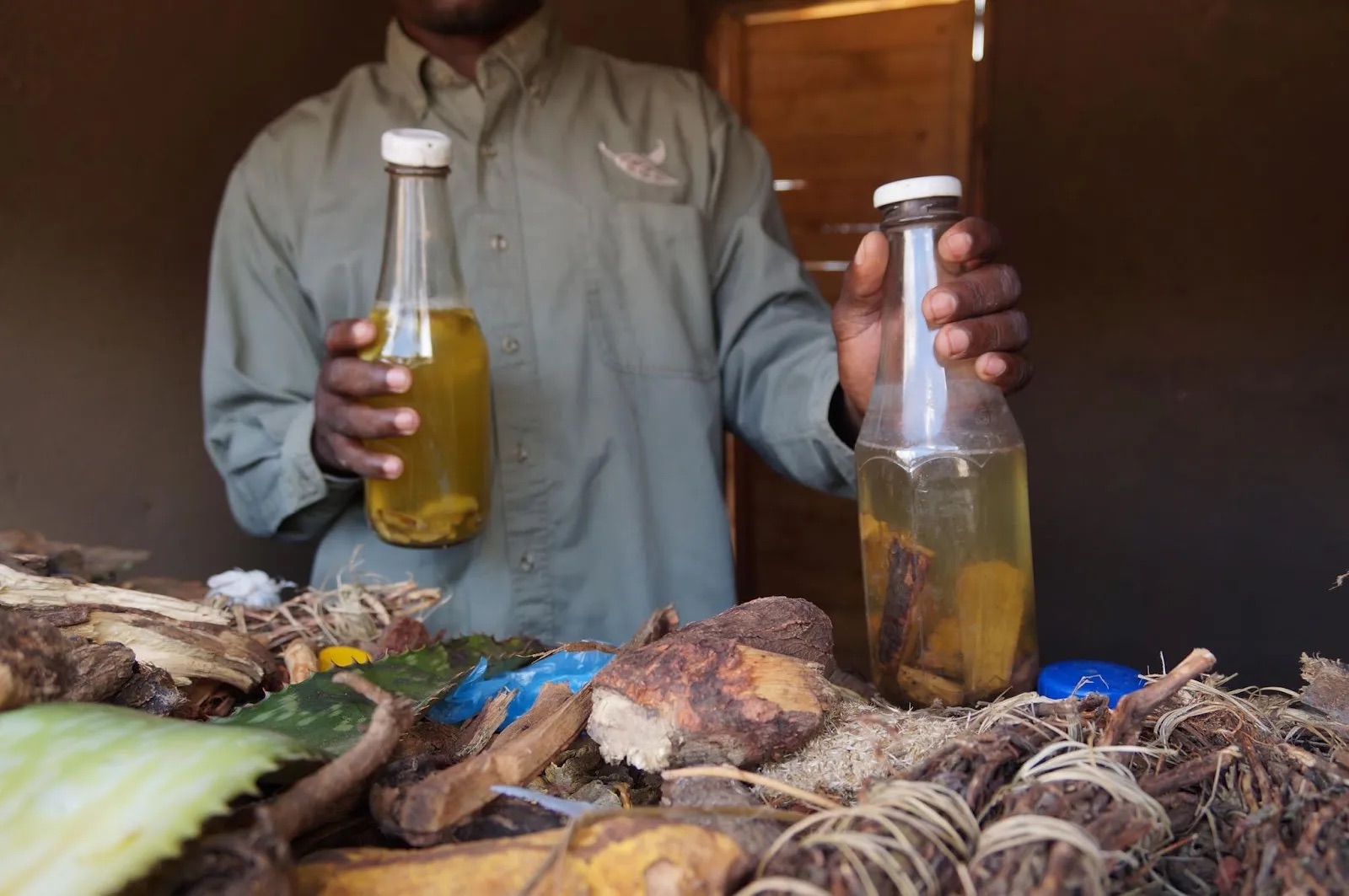Malawi’s laws outlaw abortion. However, faced with a predicament of having to get rid of unwanted pregnancies, thousands of young Malawian girls and women turn to unconventional methods. But when the process goes south, they run to the hospital for care. Scores lose their uteruses, and a chance to bear children. Many of them do not make it out alive from the hospital. Hundreds of Young Women Die from Hazardous Abortions
Lonjezo (her full identity withheld) from Dedza, was barely 12 when her stepfather started sexually abusing her. Scared by his threats, she was hushed to silence. At 16, she fell pregnant.
“Because of the circumstances, I was unable to tell my mother and other close family members about what had happened. Knowing the stigma, rejection, and reaction that would come from the community if they knew the truth, I opted to acquire an unsafe abortion,” she explains.
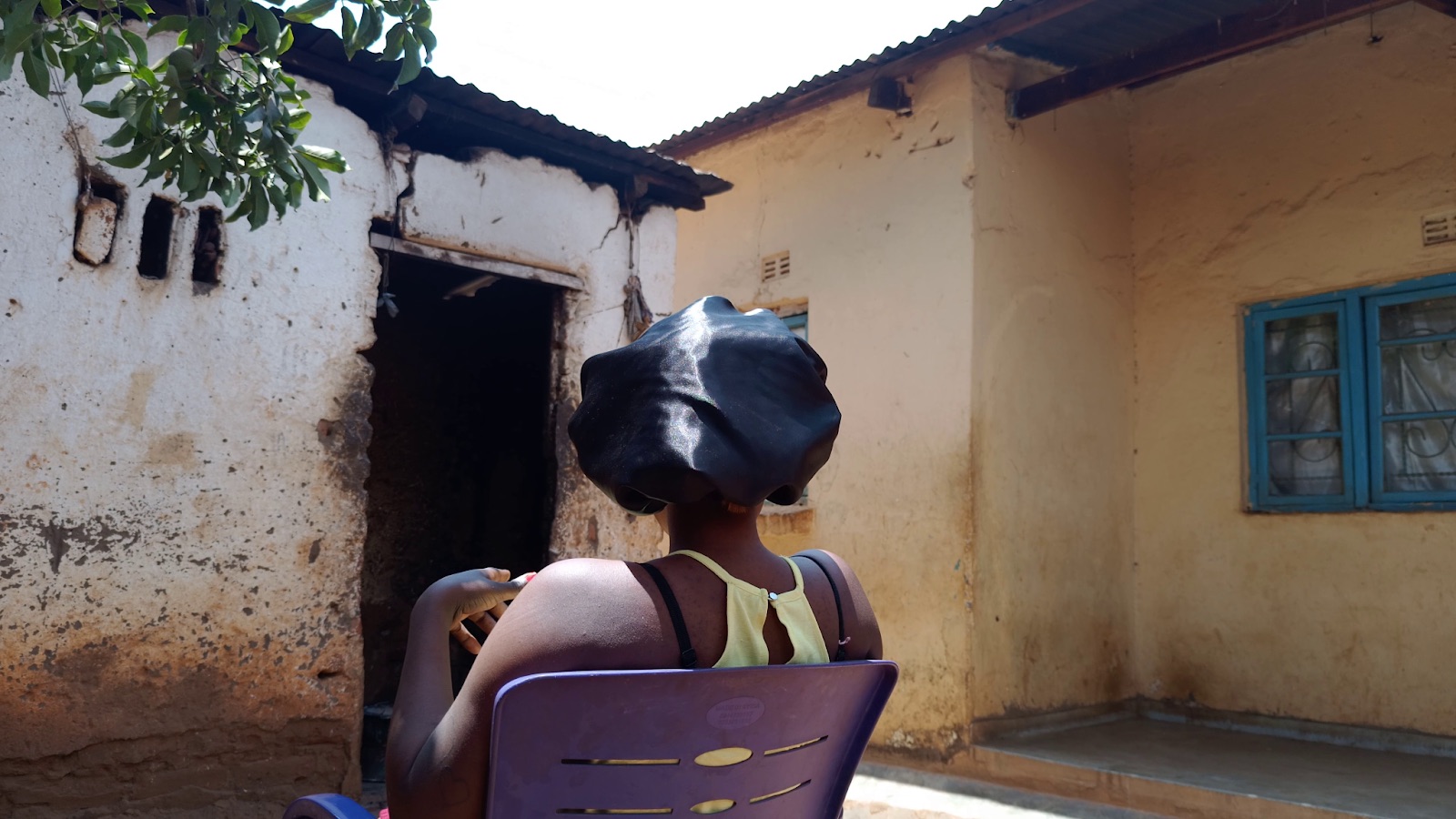
A Question of Life and Death
Following the advice of a friend, she visited a traditional healer who gave her a mixture of herbs that she drank on the understanding that the abortion would take place during the night. However, nothing happened. After a few weeks, she started feeling sharp pains, which gradually got worse.
“One day it got so bad that I had to be rushed to the hospital where I was told that I had developed an infection because the abortion was not complete. Although the doctors were able to save my life, they removed my womb meaning that I will not be able to be a mother at any point in my life,” she says.
In rural Malawi, thousands of young girls, faced with situations like Lonjezo’s, use unconventional methods to terminate pregnancies. While abortion services and indeed ‘medicines’ are readily available in urban Malawi, the situation is no better in urban areas. Not just in the rural areas, apparently, even inside the country’s major cities, as our investigations uncovered.
In Lilongwe’s Area 25, two young women narrate their stories of how they came face to face with death after they terminated their pregnancies. In an interview with PIJ, the two friends, Chimwemwe and Mary, (both full identities withheld) narrated their respective ordeals.
“I once had an abortion on a five-month pregnancy at a private clinic in 2019. At the clinic, the doctor inserted a tablet in my vagina and gave me another one to put under the tongue. They gave me a bed where they observed me for 30 minutes before they discharged me,” Mary explained. However, she explained, upon reaching home, she started bleeding heavily and feeling dizzy.
“None of my relatives knew about this, as I had feigned a severe headache. After a few days, the bleeding stopped, but I was still in pain. The next morning, I went to Bwaila Hospital, where I disclosed to the nurse that I had an abortion. I felt like I was going to die. Actually, at one point, I remember saying my final prayers and asking God for forgiveness. But despite the pain I was in, the nurses did not attend to me until 5 pm when they took me to the theatre for D&C,” she said.
Dilation and Curettage, simply known as D&C, is a procedure to remove tissue from inside a uterus. Health care providers perform D&C to diagnose and treat certain uterine conditions — such as heavy bleeding — or to clear the uterine lining after a miscarriage or abortion.
Chimwemwe’s case is more drastic. In November last year, she decided to terminate her pregnancy after her boyfriend, a married man, abandoned her midway through the pregnancy.
“I was six months pregnant, so I went to the pharmacy to buy meds to abort the pregnancy because the man I was dating left me. I followed the instructions I had been given at the pharmacy, which included inserting a tablet in my private parts. Later, the foetus came out, but I was in severe pain. After some days of being sick, I gathered the courage and confessed to my relatives, who took me to the hospital. Despite getting to the hospital around 6 am, my case was not treated as urgent… they attended to me at 4 pm when they took me to the theatre for D&C. By then, I had started discharging smelly blood and a watery substance. The doctors told me that I was lucky that this didn’t affect my uterus,” she said.
Chimwemwe further narrated the story of a young Area 25 woman who died after she took abortion-inducing tablets.
“Two years ago, a friend was dating a married man with whom she got pregnant. But the man gave her meds to abort; she took the meds, collapsed and a few hours later, she was pronounced dead on arrival at the hospital.”
Our investigations reveal that, although the government outlaws abortion in the country, except for health reasons, private clinics and reproductive health facilities have been providing the service unabated for years.
Herbalists, too, who mostly work without any regulation from the state are providing abortion services.
A Lilongwe-based young woman who refused to be named told PIJ that she accessed a private clinic at Kawale in October last year.
“I just walked in and told them I wanted an abortion. There were no questions asked. So, they used a suction method where they used a big injection-like suction to suck out the baby from your womb via the vagina. They do it three times and give you time to rest. They then give you a painkiller after which you’re free to go,” she said.
She paid K30,000 for the service although no receipt was issued. She did not experience any post-abortion complications.
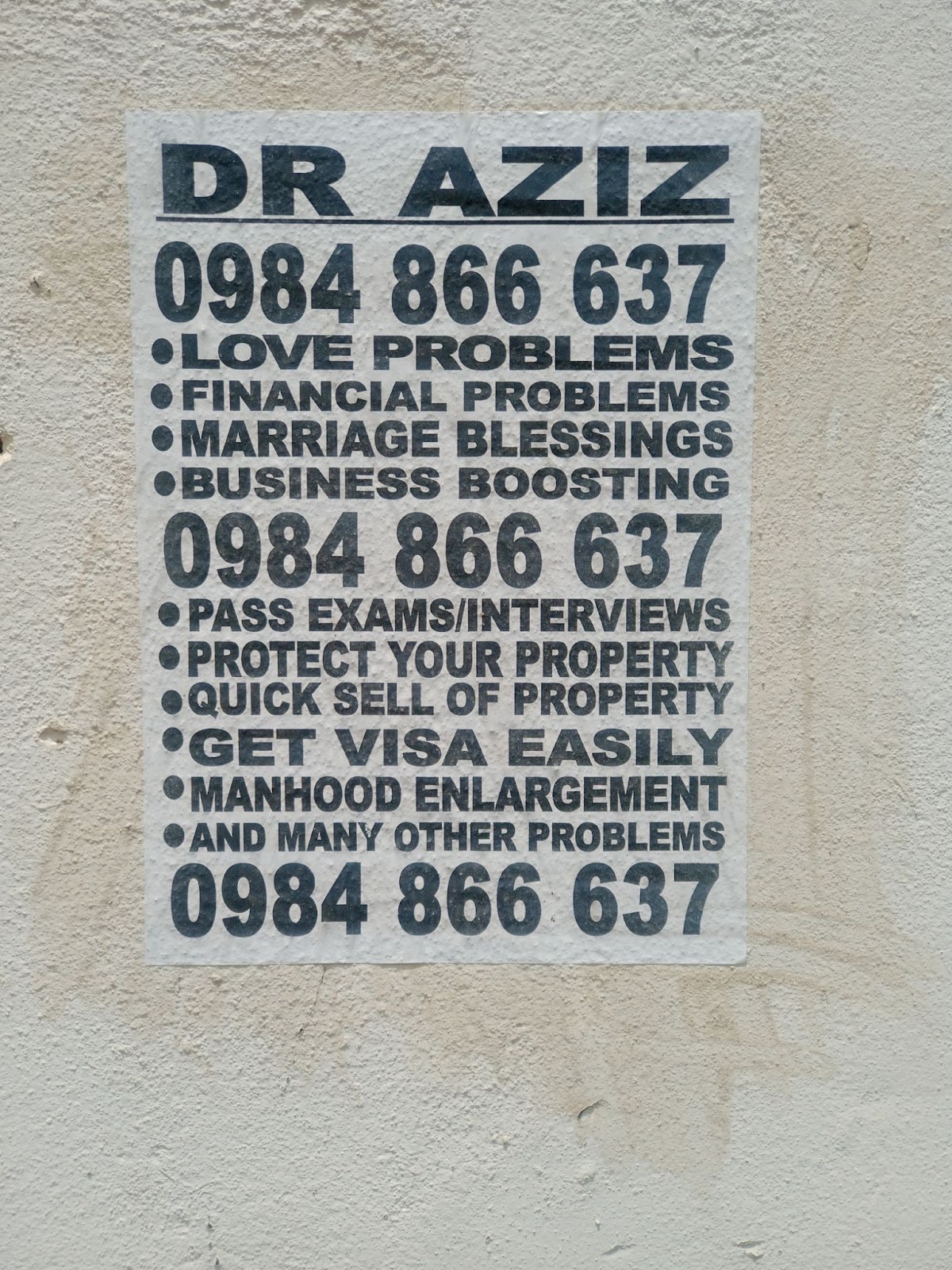
Another, but a more popular option is traditional herbalists such as a Blantyre medicine man who goes by the name Dr Aziz.
The Machinjiri herbalist told PIJ that he administers the medicine via a pill that costs K35,000. “It’s a herbal pill and it has no side effects but the termination happens immediately. It is very safe,” he said.
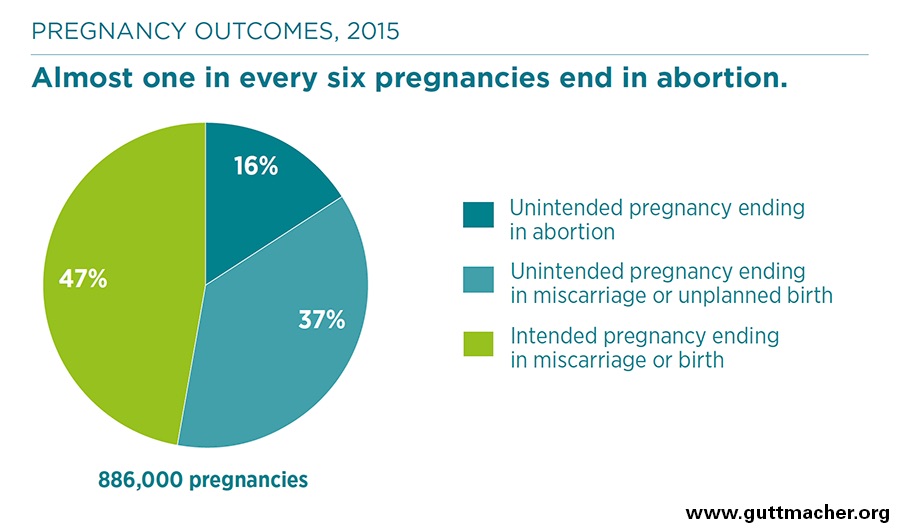
Mzimba’s Abortion Surge
Mzimba District Hospital is not a place of many tales. Just the usual in-and-out traffic of patients seeking respite from an ailment. Nothing untoward or out of the ordinary. It is not until one enters the hospital’s surgical ward that gory stories begin to unravel. Behind the sanctified walls of the surgical ward lie many ghastly secrets.
We have had cases where women, a lot of them young girls, have come to hospital with sticks in their vaginas which we have had to surgically remove,” Mzimba South post-abortion care coordinator Gracious Masewo told PIJ.“Usually, in trying to induce an abortion, girls use cassava stems to try and remove the baby but sometimes it ends up damaging the uterus. In some cases, they delay coming to the hospital and the uterus starts to rot and we have no choice but to remove it,” he said.
Masewo said when the women arrive for post-abortion care, they are taken to the surgical ward for admission. “If she is bleeding, we stop the bleeding and if there are still residues, we evacuate the remains, and sometimes sticks. We receive a lot of such cases because a lot of young girls use cassava stems to try to remove the baby,” he says.
He says the district has not reported any deaths from post-abortion care this year. “But we had a death last year. However, some cases happen at home, so we wouldn’t know because they are not reported,” he said.
Masewo says the situation in the district is “so serious” that the hospital receives three to four cases on a daily basis. “As a district, from January to October, we have received 900 post-abortion care patients. So, this shows how serious the problem is.”
35,000 Abortions, 16 Deaths in 2021
Ipas, a global non-governmental organisation dedicated to ending preventable deaths and disabilities from unsafe abortion, says 35,048 unsafe abortions were registered in Malawi last year alone. 16 of these cases resulted in deaths.
Lilongwe tops the charts with 4,432 abortions in the district followed by Blantyre at 2,500 and then by Dowa, Mangochi, Mzimba South, Zomba and Thyolo with an average of 1,000 abortions. A nurse who works at the female ward at Kasungu District Hospital told PIJ that the facility receives no less than four cases on a daily basis.
“It is guaranteed that we have admission for post-abortion cases with numbers reaching 10 patients on some days,” she says. The nurse, who refused to be named as she is not authorised to speak, said in the past, patients used to say they had used traditional methods such as herbs and sticking sticks up their private parts.
“There were incidents where people used to drink surf or aloe vera but not anymore. Many people these days use tablets. However, when we query them, they are not able to mention the tablet, they just say they bought it in a pharmacy or private clinic. However, we strongly suspect that they use Mifeprex,” she said.

Mifeprex (mifepristone) or simply the abortion pill, is a drug that blocks a hormone called progesterone that is needed for a pregnancy to continue. Mifeprex or its approved generic mifepristone tablets, when used together with another medicine called misoprostol, is used to end an early pregnancy.
Ipas Malawi collected the statistics in collaboration with the Reproductive Health Directorate in the Ministry of Health, and the District Health Office Post-Abortion Care Coordinators countrywide. Therefore, it should be understood that the figures only account for people that sought post-abortion care in hospitals because of complications. Those that had successful abortions are not accounted for. Health estimates put the total number of unsafe abortions in Malawi annually at roughly 67,300 annually.
Ipas Southern Africa region health systems advisor Christopher Kandionamaso told PIJ that the figures were collected nationwide from CHAM, government, and private health facilities. According to Ipas, Malawi’s abortion law is one of the most restrictive in Africa, as it only permits the termination of pregnancy to save a woman’s life.
“This leads many women and girls to end unwanted pregnancies in unsafe, clandestine settings. Unsafe abortion accounts for 18 per cent of maternal deaths in Malawi, and the health system treats high numbers of women with complications from unsafe abortion.” A different study, conducted by The Guttmacher Institute, research, and policy NGO that aims to improve sexual and reproductive health and rights worldwide, estimated that 141,000 abortions were performed in 2015. This number translates to a rate of 38 abortions per 1,000 women aged 15–49.
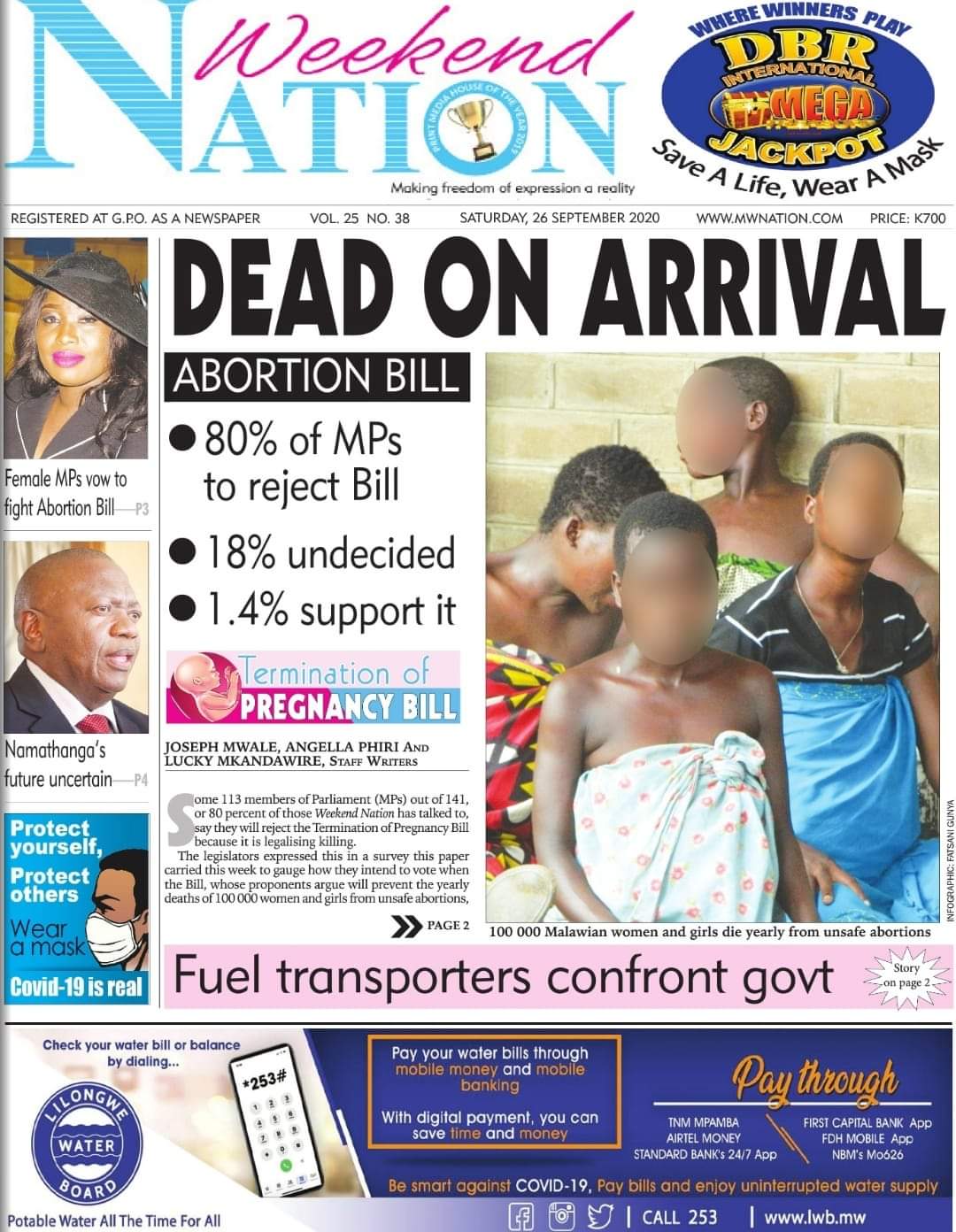
When it Comes to Abortion, Women Have No Choice
Women’s health rights advocate and reproductive health expert Chimwemwe Mlombwa says many unsafe practices are a result of myths, misinformation and stigma of accessing unsafe abortion. “Statistics and reports show that almost 50 per cent of pregnancies in Malawi are unwanted and, due to the restrictive laws in Malawi, even those that are eligible to access safe abortion opt to go for unsafe methods where they will not be stigmatised or judged,” she says.
She explains that there are varying reasons why women choose to have abortions. “Not all sexual intercourse may be consensual. Others opt for abortions to avoid the negative reactions and stigmas of society and to protect themselves, some are not financially, emotionally or physically capable of carrying a pregnancy to term, so they opt for abortions. Which is why I believe it is inhuman to force a girl to carry a pregnancy to term that potentially puts her life in danger,” she says.
Mlombwa explains that unsafe abortion in Malawi is fuelled by patriarchy, lack of access to information, stigma, religion and hypocrisy. “The truth of the matter is while we may look at this as a legal issue, it is also an issue of class; people who have financial resources can procure safe abortions easily but the strain comes in for those that do not have the financial resources to procure safe abortion services. Many young women do not know their rights or have access to comprehensive sexuality education or sexual and reproductive health services and due to this, they make uninformed decisions or are unable to identify when they are being abused. Religious groups and leaders have also been at the forefront of the anti-abortion movement and, in Malawi, religious leaders hold a lot of influence in our society.
Women’s rights advocate Emma Kaliya says it is time the country confronted the unsafe abortion problem. “The situation remains very bad. Actually, it is getting worse by the day for so many reasons, the key factor being the pushback from the general community,” she said. Kaliya notes that the country is in a very dangerous situation because many people do not care. “If it’s not your relative dying, you do not care. Girls are dying because they are trying to save their lives. Most of the girls or most of the women that end up aborting know that it is dangerous, they know it. But when a woman has made a decision that they are not going to keep that pregnancy, they will do whatever they can do and they will succeed in what they want to do by aborting because what if somebody has decided that they are not going to be responsible for the kid, what do you expect them to do?”
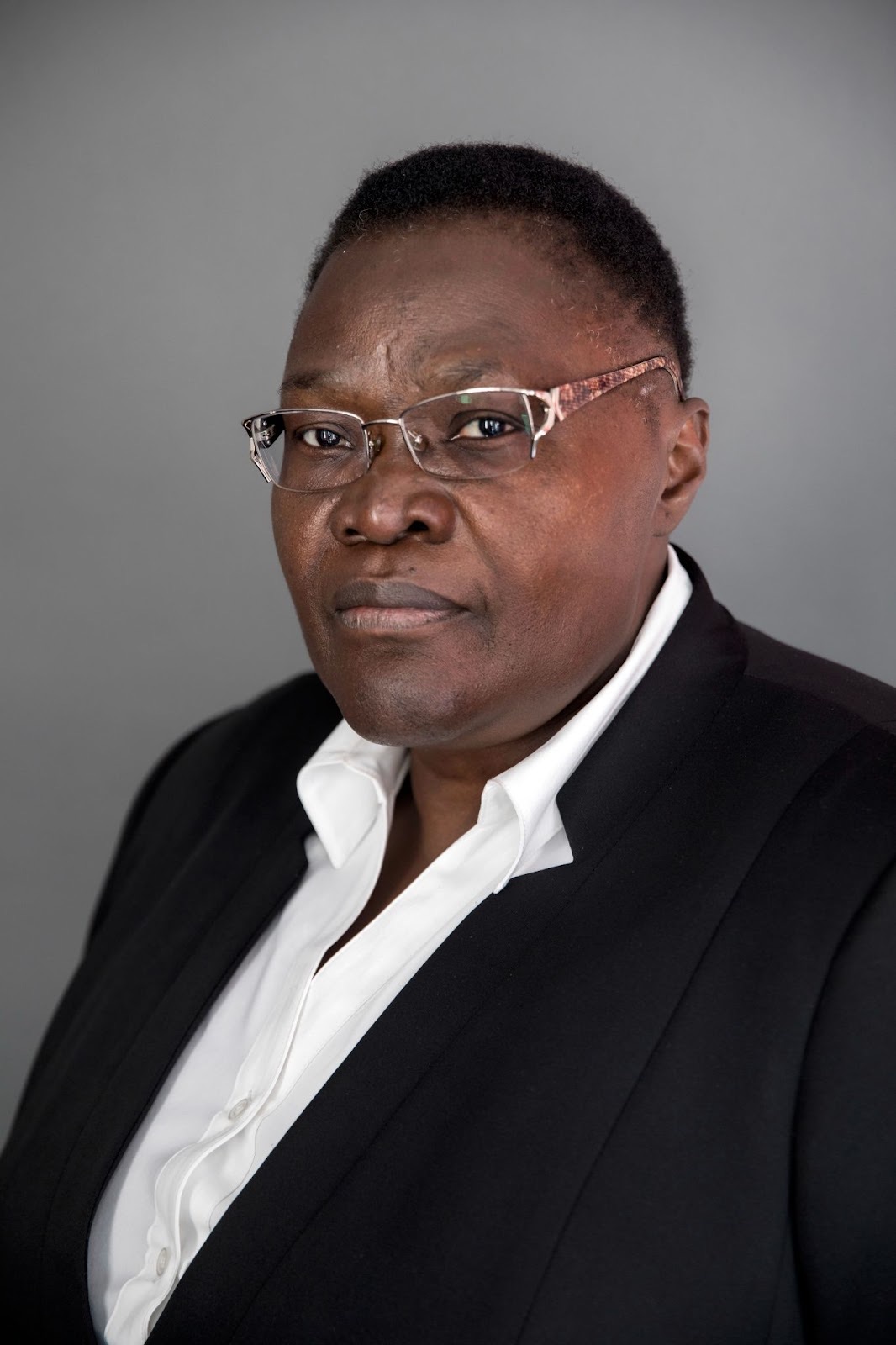
As per Kaliya, when the country cannot propagate and respect human rights, then it cannot respect women’s reproductive rights. “Then you wonder what we’re talking about. So, it is a serious problem. We need to understand that the problem is escalating, and it is not going to change soon, unless we put in measures that will help change the status quo,” she says.
Dr Godfrey Kangaude, a sexual and reproductive justice expert believes access to safe abortion is not just a health issue, it is also a legal and justice issue. For instance, the question of whether it is legal to provide termination of pregnancy to a child who is pregnant because of sexual assault is a legal question with serious implications for the survivor of the sexual assault.
“It is high time girls and women took the matter to court. Our courts resolve many complicated issues, and what is complicated about clarifying whether it is lawful to provide termination of pregnancy to a girl or woman who has been raped?”
The article was first published by the Platform for Investigative Journalism and can be accessed here.

